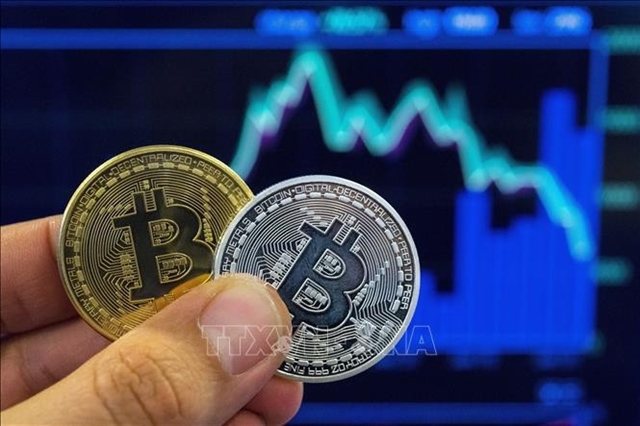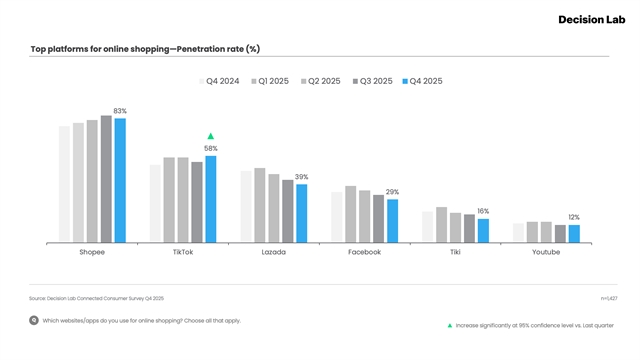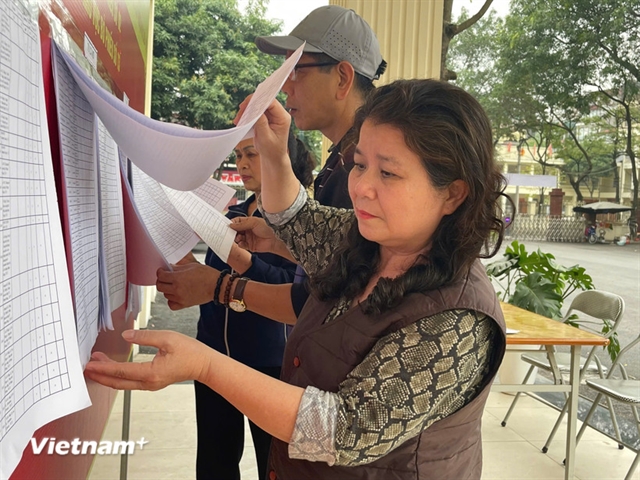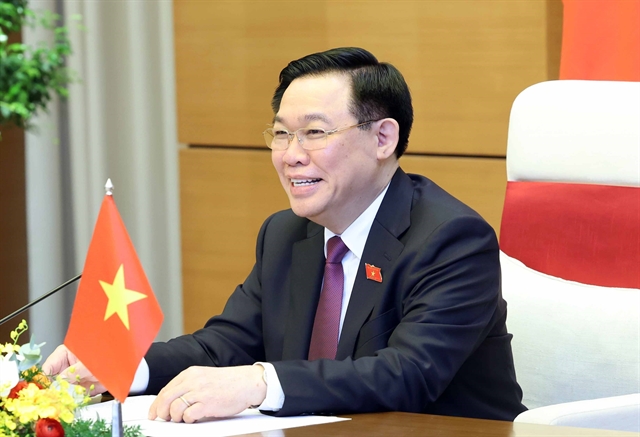 Politics & Law
Politics & Law
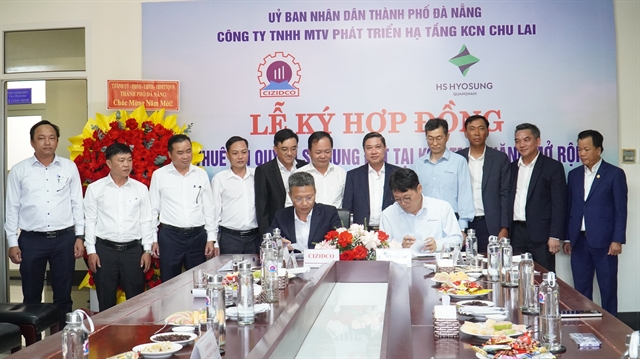
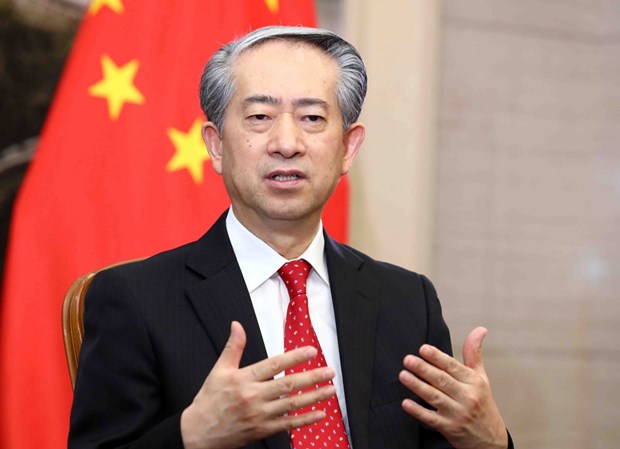 |
| Chinese Ambassador to Việt Nam Xiong Bo. VNA/VNS Photo |
National Assembly (NA) Chairman Vương Đình Huệ is set to head a prominent Vietnamese delegation on an official visit to China from April 7 to 12, following an invitation extended by Chairman Zhao Leji of the Standing Committee of the National People's Congress (NPC) of China.
Chinese Ambassador to Việt Nam Xiong Bo sat down with the Việt Nam News Agency (VNA) for an interview, discussing pertinent topics concerning the visit.
NA Chairman Vương Đình Huệ will visit China in the coming days. Could you please comment on the visit's significance for the relationship between the two countries?
This will be the first official visit that Vietnamese NA Chairman Vương Đình Huệ pays to China as the leader of the Vietnamese NA. China attaches great importance to and warmly welcomes this visit.
The visit is an important interaction between high-ranking leaders of the two Parties and two countries with an aim to maintain and strengthen strategic exchanges, with the most important task being to accelerate the implementation of a series of important common perceptions reached between the top leaders of the two Parties, especially the important common understandings reached during the visit to Việt Nam by General Secretary of the Communist Party of China and President of China Xi Jinping last year. During the visit, Xi and the Vietnamese Party General Secretary Nguyễn Phú Trọng reached a series of new important common perceptions, of which the most important is to maintain the high-level exchanges between the two Parties. The upcoming China visit by NA Chairman Huệ is also a specific action to maintain high-level bilateral exchanges.
At the same time, this will be the first visit to China by a high-ranking leader of Việt Nam since the two countries announced the building of a Việt Nam-China Community with a Shared Future which has a strategic significance, striving for the happiness of the people of both sides, as well as for peace and progress for humanity.
Besides, this will be the first meeting between the highest leaders of Vietnamese and Chinese legislatures since the announcement of the Việt Nam-China Community with a Shared Future. This has key significance in promoting cooperation between the two countries across all fields, increasing experience exchanges between the two sides in Party building and national management, enhancing key cooperation in many areas, and deepening exchanges between the two legislative bodies.
During this visit, the two sides are scheduled to sign a new cooperation agreement between the two countries' legislatures and establish a new high-level dialogue mechanism.
In general, this visit is very significant and we expect that it will produce good results.
How do you think the cooperative relations between the Vietnamese NA and the Chinese NPC have contributed to the overall development of the ties between the two countries over the recent past?
Exchanges between the two countries' legislative bodies are an important component in the relationship between the two Parties and the two countries. In the process of developing bilateral relations, the two countries' legislative bodies have maintained close exchanges.
In March last year, after the election of the Standing Committee of the 14th NPC of China, Chairman of the committee Zhao Leji had his first online meeting with NA Chairman Vương Đình Huệ in his position as Chairman of the NPC of China. This official visit to China by NA Chairman Vương Đình Huệ will be a continuation of the close exchanges between the two countries' legislatures.
How do you assess the opportunities and challenges for the bilateral relations in the future?
First of all, like any bilateral relationship, both opportunities and challenges exist in the China-Việt Nam relationship. There cannot be opportunities without challenges. I think the most outstanding feature of China-Việt Nam relations is that opportunities outweigh challenges by far, and through the efforts of both sides, some challenges can be effectively managed and transformed into opportunities for cooperation under certain conditions.
Talking about opportunities, the biggest opportunity or the most basic advantage of China-Việt Nam relations is that both sides persistently implement the strategic directions of the top leaders of the two Parties and their political guidance in the relationship between the two Parties.
Both sides attach importance to maintaining political security, which means ensuring the leadership of the Party and the safety of the socialist regime as their fundamental strategic interest. The two sides attach great importance to enhancing the exchange of experience in Party building, State management and national construction, assisting each other's major political agendas, and supporting the implementation of medium- and long-term goals.
In addition, the traditional friendship of China and Việt Nam, built and nurtured by generations of veteran leaders of the two Parties, including Vietnamese President Hồ Chí Minh and Chinese President Mao Zedong, becomes a valuable asset of the two sides, contributing to helping the two countries continuously strengthen cooperation, and a strong spiritual strength for us to jointly accelerate the cause of development.
China and Việt Nam are extremely important economic and trade partners of each other. China was Việt Nam's largest trade partner, while Việt Nam was the fifth biggest trade partner of China last year. The two sides have close economic, trade and investment links. They boast a geographical advantage, their mountains and rivers are interconnected, with convenient transportation, similar cultures and close people-to-people exchanges. These factors are all huge opportunities for developing the China-Việt Nam relationship. However, cooperation in many fields between the two sides has yet to match the favourable conditions and huge cooperation potential between the two countries.
During the visit to Việt Nam by Party General Secretary Xi Jinping last year, high-ranking leaders of the two Parties and the two countries achieved the goal of "better management and control of differences”. In a high-level visit, reaching such a common perception is extremely rare. This demonstrates the will, determination and confidence of China and Việt Nam in candidly acknowledging and solving differences in a reasonable manner.
Trade cooperation and investment have always been crucial to promoting relations between the two countries. How do you assess the achievements and progress of practical cooperation between the two nations?
Economic cooperation, trade and investment between the two countries always maintain a strong momentum of development. Amidst the complex fluctuations and challenges in the world, sustaining this development momentum is by no means simple. Last year, amid a complicated external environment, the economic development of both China and Việt Nam faced numerous challenges, but they managed to maintain a growth rate of over 5 per cent, which is a noteworthy achievement.
Meanwhile, bilateral trade did not experience an excessive decline. According to China’s statistics, the two-way trade hit US$229.8 billion, with Việt Nam's exports to China increasing by 4.8 per cent. I want to emphasise that although Việt Nam's agricultural exports to China, especially fruits and vegetables, may not account for a large proportion, they hold significant importance in bilateral trade and are highly valued by Vietnamese leaders. China also attaches great importance to increasing agricultural imports from Việt Nam. Last year, Việt Nam's fruit and vegetable exports to China surged by 139.5 per cent, accounting for 65 per cent of Vietnam’s total export turnover of fruits and vegetables. In this, durian exports reached nearly 500,000 tonnes worth US$2.1 billion. We believe that Việt Nam's fruit and vegetable exports to China will continue to maintain this strong growth momentum this year. The export situation in the first quarter of this year was very favourable.
China’s investment in Việt Nam has also maintained rapid growth. Last year, China poured US$4.47 billion of investment into Việt Nam, up 77.6 per cent year-on-year, making it the fourth biggest foreign investor in Vietnam.
During the visit to Việt Nam by Party General Secretary and President of China Xi Jinping last year, the two sides achieved important common perceptions regarding strengthening practical cooperation, with top priority given to accelerating transportation infrastructure connectivity.
Also, during his Việt Nam visit, General Secretary and President Xi Jinping emphasised that China firmly supports Việt Nam in speeding up industrialisation and modernisation, and is willing to actively participate in the process of transforming and upgrading Việt Nam's economy, especially in terms of energy transition. Leaders of many large energy and power generation companies in China have come to Việt Nam to conduct market surveys. Accelerating a shift and upgrade of energy holds significant importance for the sustainable development of Việt Nam's economy, promoting industrialisation, and realising the goal of net-zero emissions. Chinese enterprises can provide strong support to Việt Nam in such areas as policy consultation, technical services for energy transition and power development, as well as the development of wind and solar energy, energy storage, hydro energy, and other new energy sources. VNS


